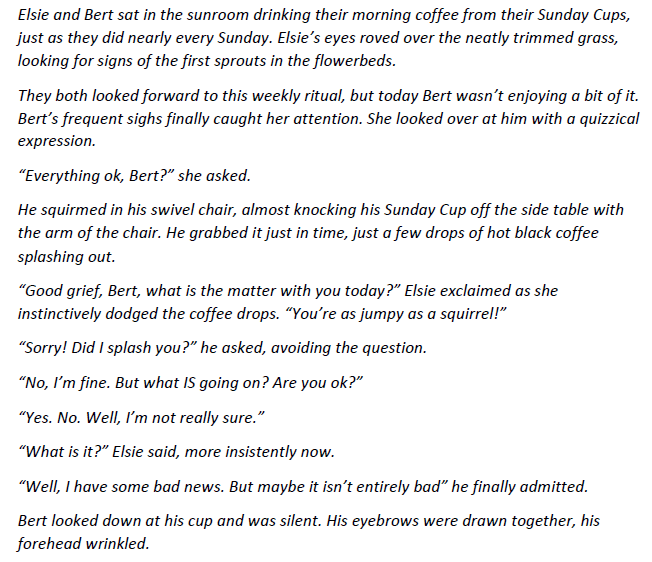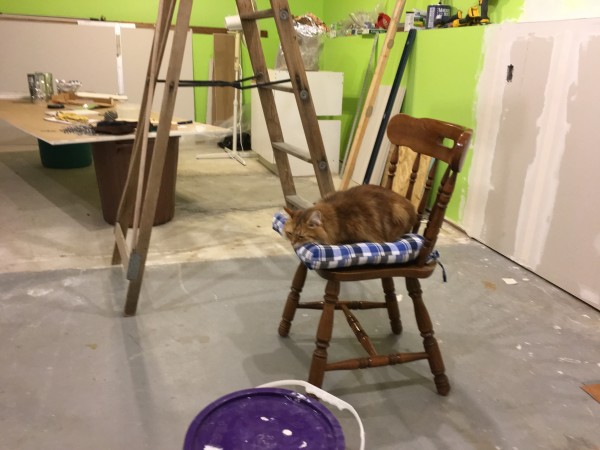The first draft of my novel is crap. Serious crap. It’s not even editable. All I gained with the first draft is the chance to tell the story to myself – and to one beta reader, which was kind of a mistake even though she was a very kind and encouraging reader. Having someone read my story too soon gave me the idea that I had to commit to what I had written – when in fact I need to scrap pretty much the entire first draft. In an odd way I felt like I would be letting down the one beta reader if I made too many changes to the story.
Note to self: never let anyone read my fiction until it is past the third draft!
Always Be Learning
…and be willing to change things up! The image I used in this post is a quilt I’m making – I followed a pattern, but when I laid it out I wasn’t happy with it. I changed things around a bit and now I love the layout. I use my design wall a lot with every quilt to try different layouts before choosing what I like. This is a good reminder to me that even when I think I know what I’m doing, I need to be open to change. That applies to writing as well as quilting.
Now that I have that first crappy draft out of the way, the real work begins. Since I wrote that first draft I’ve learned a few things. Like how to quilt. That will make a huge difference to this particular story. I have learned that developing a plot is a good thing. That’s where I am starting with the second draft. Laying out the overall plot, identifying specific scenes, developing a timeline, and a few more of the mechanics of telling a story. I know there is a lot for me to learn as I go.
Real Characters
One important part that has come out of the first draft is the characters. They are always on my mind. As I’m choosing fabric or a pattern for a new quilt I’m imagining what Elsie would say about it and whether she would approve of my choices. As I rearrange the furniture in my sewing room I hear Bert’s opinions on my storage and workstations. I feel like I’m getting to know them better as I work out how to write the next draft. Things are beginning to shift – at first I was imagining and creating a story and now I feel like I am transcribing a story my characters are telling me. The next draft will have real characters.
Creatives Need Community
My first draft taught me that creativity is increased when I am surrounded by other creatives. In learning to quilt I became part of a quilting community. That creative community has encouraged me, challenged me, and welcomed me. Community is crucial. What I need with writing is similar.
Isolation is a dream killer
Barbara Sher
I need to learn the mechanics of writing, and I need to practice a lot, and I need a writing community to encourage, challenge and welcome me. I have joined in with writers in my local area and I have connected with creatives online. I’m excited to see my writing community developing around me.
Motivation vs Discipline
I have learned that discipline is far more effective than motivation. When I wait to be motivated to write, it doesn’t happen very often. If I rely on discipline then things get done. I use a lot of tools to support being disciplined and sometimes they work – sometimes not so much. What I know is that discipline is simply a choice I make on a regular basis. Each time I choose yes to the goal, I build the habit of discipline.
Last week I committed to a small daily goal of writing for a minimum of 20 minutes. So far I have been writing for more than 20 minutes a day. Today, for example, I continued after the 20 minutes was up and I ended up writing a scene that is about 1500 words. Then I decided to write this post.
This is different from other times when I thought I had committed to something – but then failed to keep up the commitment. This time I am consciously thinking about my commitment each day, and making a choice each day. Each day I have the option to say yes to my commitment, or I can say no. I can test each day to find out if I am truly committed to my goal. So far I am.
If I start regularly answering no to my commitment, I can re-examine what I really want. Goals change. If I’m saying no to something I used to say yes to, it’s time to choose something that is more aligned to my new goal.
I like the freedom of choosing every day. There is no judgement about failure, no need for negative self talk. It’s simply a question I answer each day…do I want to finish writing this book? If the answer is yes, I go write for a minimum of 20 minutes. And I get to feel good about 1) having choice, 2) knowing I am choosing what I want even if I change what I want, 3) eliminating the need to beat myself up for not meeting expectations.
Next…NaNoWriMo
This discipline is good practice for NaNoWriMo. I haven’t participated in NaNoWriMo for a few years, but the book I’m working on now was first written during a NaNoWriMo challenge. Part of the reason for the really crappy first draft is that I didn’t know what the story was and in an effort to meet the word count I took the story on some pretty odd tangents. This year I’m going to try something different. I’m going to make a plan ahead of November. Right now I think I will be working on Elsie’s story, but that could change between now and November. I’ll keep you posted!
Comment if you’re going to join in on NaNoWriMo this year, maybe I’ll see you in that community. Or comment if this post has sparked something you’d like to share here.








